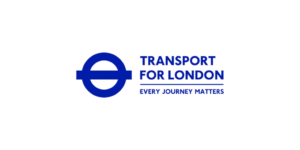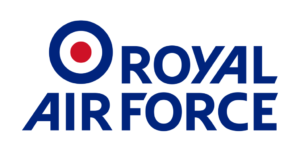
How To Become A Transport Planner
You’ll get to manage road, rail and air transport networks for your local area – and beyond.
What Is A Transport Planner?
If you’ve ever walked down a street or road and wondered how they decide where to put the train station or the bus stops, you could make a great transport planner.
Transport planners are needed to make sure a transport system is safe, environmentally friendly, economically sound and reliable. Transport is a really important part of social living.
You’ll have an incredibly varied job looking at the big picture and the little details, from thinking about how to avoid long traffic jams at rush hour to studying how airports affect their environment.
You can work for private companies or the government and local authorities, and as there is a skills shortage in transport planning your skills could help you get places fast.
What Does A Transport Planner Do?
You’ll be seeing how transport issues have an impact on the public. A transport issue could be anything from needing to increase road safety outside a school to looking at ways to reduce traffic jams at rush hour.
Some day-to-day job responsibilities include:
- Using computer models to simulate transport issues and work out possible solutions
- Looking at research from transport studies to understand what it shows and how that information could be used to improve things
- Looking at traffic management schemes (like parking or congestion charging
- Writing reports and presentations
- Acting as an ambassador to encourage people to use environmentally-friend travel options like public transport, walking and cycling.
How Much Money Can You Earn As a Transport Planner?
These LMI Job Trends give you a sneak peek of how much you could earn starting out for this career, and how much your salary could grow with experience.
Average Salary For Transport Planning Jobs
Recent labour market information says you can earn on average between £20,000 and over £40,000 a year as a transport in the UK.
The starting salary can be around £20,000, increasing to £30,000.
When you develop experience, your wage can increase to £44,000 and beyond, depending on which company you are with.
Skills You Need To Become A Transport Planner
Useful Skills To Put On Your CV:
- Fantastic negotiation and communication skills (for example, town councillors or local groups might have different views on the benefits of a transport system change, and you will need to communicate with people from all walks of life, from clients to the public)
- Written communication skills for writing reports and creating presentations
- Self-management skills for planning your time well, not forgetting any important tiny details and sometimes project management if you are in a senior position
- Self-belief skills that will help you find flexible and creative approaches to problem solving
- A logical approach to looking over plans and proposals, making logical recommendations, and making sure the plans are carried out
- Good teamworking skills – you may be working as part of a team, and with time and experience you may be managing a team to oversee a project.
- Good basic digital skills, as a lot of what you do involves transport planning software that you will be trained in.
How Do You Get These Skills?
Vocational qualifications and work experience will help you build these skills over time.
Build Your Skills With the FREE Young Professional Programme
What Qualifications & Training Do You Need For Transport Planner Careers?
School, College And Training
Transport planning is a career you normally enter after studying to degree level or the equivalent, but there are increasingly ways to enter this career if you haven’t been to university.
Apart from finding an apprenticeship, another route in is to start work in a transport planning department and work towards vocational qualifications once you’re there. Useful qualifications include Civil Engineering, Transport Engineering or Transport Planning qualifications at levels 3-5.
Relevant HNDs and HNCs are also available, like the Construction and Built Environment Diploma.
Transport Planning Apprenticeships
You can get into this job through completing a transport planning apprenticeship. This will give you the opportunity to earn a salary working in transport planning while getting structured learning that leads to an industry-recognised qualification.
A transport planning advanced apprenticeship might need you to have five GCSES (9-4) and A-levels or the equivalent to apply.
Your employer of choice may be advertising apprenticeships on their career websites, or it’s always worth checking the Find An Apprenticeship website.
Graduates, Degrees and University
The following subjects are useful to study at degree level, before going on to do a master’s qualification in transport planning:
- Civil engineering
- Economics
- Environmental science
- Geography
- Business studies or social sciences
The variety of subjects shows just how many different ideas and skills go into like transport planning. You could be thinking about money, if the area is flat or at risk of flooding, or if wildlife would be placed under threat with changes to a travel route. Your job might involve considering how a change to a transport system might affect people’s homes, work, life and play.
Career Progression And Development
With time and experience you could become a senior transport planner or traffic engineer.
Your skills and experience will also give you the chance to move into similar areas of work like town planning, policy development, or working as a freelance consultant.
What Work Experience Do You Need For Transport Planning Jobs?
Work Experience Tips
It can help your application if you have done work experience in an office-based environment that showcases your basic digital skills (like data entry and using spreadsheets).
Office admin activities like answering phone queries, managing the office diary to keep track of meetings and events, and processing expenses like petty cash, will show you have useful organisation skills for transport planning.
Getting Experience
Examples of relevant work experience include:
- Work shadowing (even if it’s just for a day)
- Work placements in a company
- Work placements on a degree course
How To Find Transport Planner Jobs: Next Steps
- Transport planning apprenticeship
- Transport planning technician apprenticeship
- Transport planning assistant
- Trainee transport planner
These Youth Friendly Employers Offer Great Opportunities
These Youth-Friendly Employers might be able to help you get great fantastic logistics jobs, training or experience! Take a look.
Logistics Career Tips & Opportunities
Transport and Logistics Career Guides
View job descriptions with average UK salary, useful qualifications and a variety of routes into this career.
Resources And Links
YES! I Want More Free Careers Help...
So what are you waiting for? Grab your future.





























